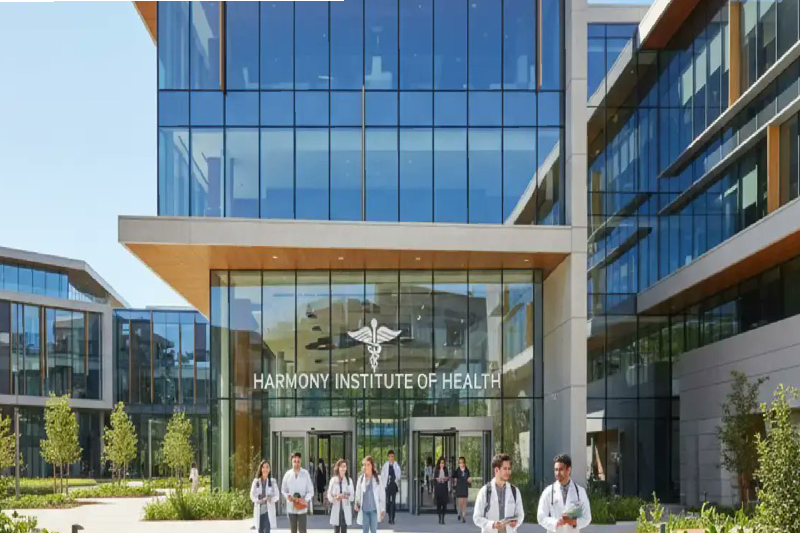
NMC Approves 10,650 New MBBS Seats and 41 Medical Colleges: India’s Medical Education Capacity Reaches New Milestone
In a landmark decision that marks a major leap toward improving medical education in India, the National Medical Commission (NMC) has approved 10,650 new MBBS seats for the 2024–25 academic session. Along with this, 41 new medical colleges have been sanctioned across the country, bringing the total number of medical institutions to 816.
This development raises the total MBBS seat count to 137,600, including seats available in Institutes of National Importance (INIs) such as AIIMS and JIPMER. The move is a crucial step in fulfilling Prime Minister Narendra Modi’s Independence Day 2024 pledge to add 75,000 new medical seats across India over the next five years.
A Strategic Move to Strengthen India’s Healthcare Infrastructure
The addition of new seats and colleges aligns with the government’s long-term strategy to address the growing demand for qualified medical professionals and improve healthcare accessibility across rural and urban areas alike.
According to NMC President Dr. Abhijat Sheth, the commission received 170 applications for expansion of undergraduate medical capacity this year—41 from government institutions and 129 from private colleges. After a detailed assessment process, the NMC approved 10,650 MBBS seats, marking one of the largest single-year expansions in India’s medical education history.
This initiative aims not only to boost the number of medical graduates but also to ensure geographical balance in medical education. Many of the newly approved colleges are located in underserved and aspirational districts, helping bridge the gap between healthcare availability and population needs.
India’s MBBS Seat Count Reaches 137,600
With the latest approvals, the total number of MBBS seats across India has now climbed to 137,600. This includes seats in central institutions, state-run medical colleges, and private universities, as well as Institutes of National Importance.
Over the past decade, India has witnessed a consistent increase in medical seats, driven by government initiatives to make medical education more inclusive and widely accessible. Between 2014 and 2024, the number of MBBS seats has nearly doubled, reflecting the nation’s push to expand healthcare capacity through education.
The addition of 41 new medical colleges this year continues this trend, bringing India closer to its goal of having one medical college for every district in the near future.
Postgraduate Expansion: 5,000 New PG Seats Expected
In addition to the undergraduate (UG) expansion, the NMC has also received over 3,500 applications for new and renewed postgraduate (PG) medical seats. Dr. Sheth stated that the commission expects to approve approximately 5,000 new PG seats, taking the total to 67,000 PG seats across the country.
When combined, the total increase in UG and PG medical seats for the 2024–25 academic year is projected to be around 15,000. This expansion is expected to enhance India’s specialist doctor workforce, supporting public health programs and tertiary care institutions that rely on skilled professionals.
Efficient Approval and Transparent Processes
The NMC’s approval process has undergone significant reforms to ensure efficiency, transparency, and fairness. Dr. Sheth highlighted that this year marks a major achievement for the commission—all appeals against decisions made by the Medical Assessment and Rating Board (MARB) were resolved without any court interventions.
This is the first time in recent history that the appeals process has been concluded entirely within the NMC framework, demonstrating improved coordination, governance, and accountability within the regulatory system.
Furthermore, officials have assured that the final approvals and counselling processes—which faced minor procedural delays—will be completed within established timelines.
A comprehensive blueprint for accreditation schedules, examination procedures, and seat matrix approvals for upcoming academic sessions will be published soon. The portal for 2025–26 applications is also expected to open in early November, allowing institutions sufficient time to prepare and apply.
Integrating Research into Medical Education
Beyond seat expansion, the NMC is also turning its focus toward improving the quality of medical education. Dr. Sheth announced that the commission is exploring the integration of clinical research into the standard MBBS curriculum, aiming to build a strong foundation for evidence-based medical practice in India.
Plans are underway for a collaborative initiative between the NMC and the Indian Council of Medical Research (ICMR) to develop a research-oriented medical education framework. The partnership will work on enhancing research infrastructure, providing faculty training, and embedding hands-on research exposure for undergraduate and postgraduate students.
This move is part of a broader vision to transform India from being just a medical manpower hub to becoming a global leader in medical innovation and clinical research.
A Step Toward Self-Reliance in Healthcare
India’s healthcare system faces the dual challenge of rising patient loads and a shortage of trained doctors, especially in rural and semi-urban regions. The current expansion in MBBS and PG seats is expected to reduce doctor-to-patient disparities and strengthen the primary healthcare network nationwide.
By increasing the number of medical graduates, the government aims to ensure that each district and block has access to qualified healthcare professionals in the coming years. The emphasis on new medical colleges in underserved regions reflects a deliberate push toward regional equity in healthcare access.
Moreover, the increase in postgraduate seats will help address shortages in specialized fields such as anesthesiology, pediatrics, and internal medicine, which are crucial for the effective functioning of hospitals and healthcare centers.
Looking Ahead: A Transformative Phase for Medical Education
The NMC’s initiatives for the 2024–25 academic year represent a transformative phase for India’s medical education sector. By combining quantitative growth in the number of seats with qualitative improvements in research and training, the commission is setting a new benchmark for medical regulation and capacity building.
As India moves toward achieving its healthcare expansion goals, these reforms will play a pivotal role in shaping a robust, research-driven, and globally competent medical workforce—one that can meet the country’s growing health needs while contributing to global healthcare excellence.


